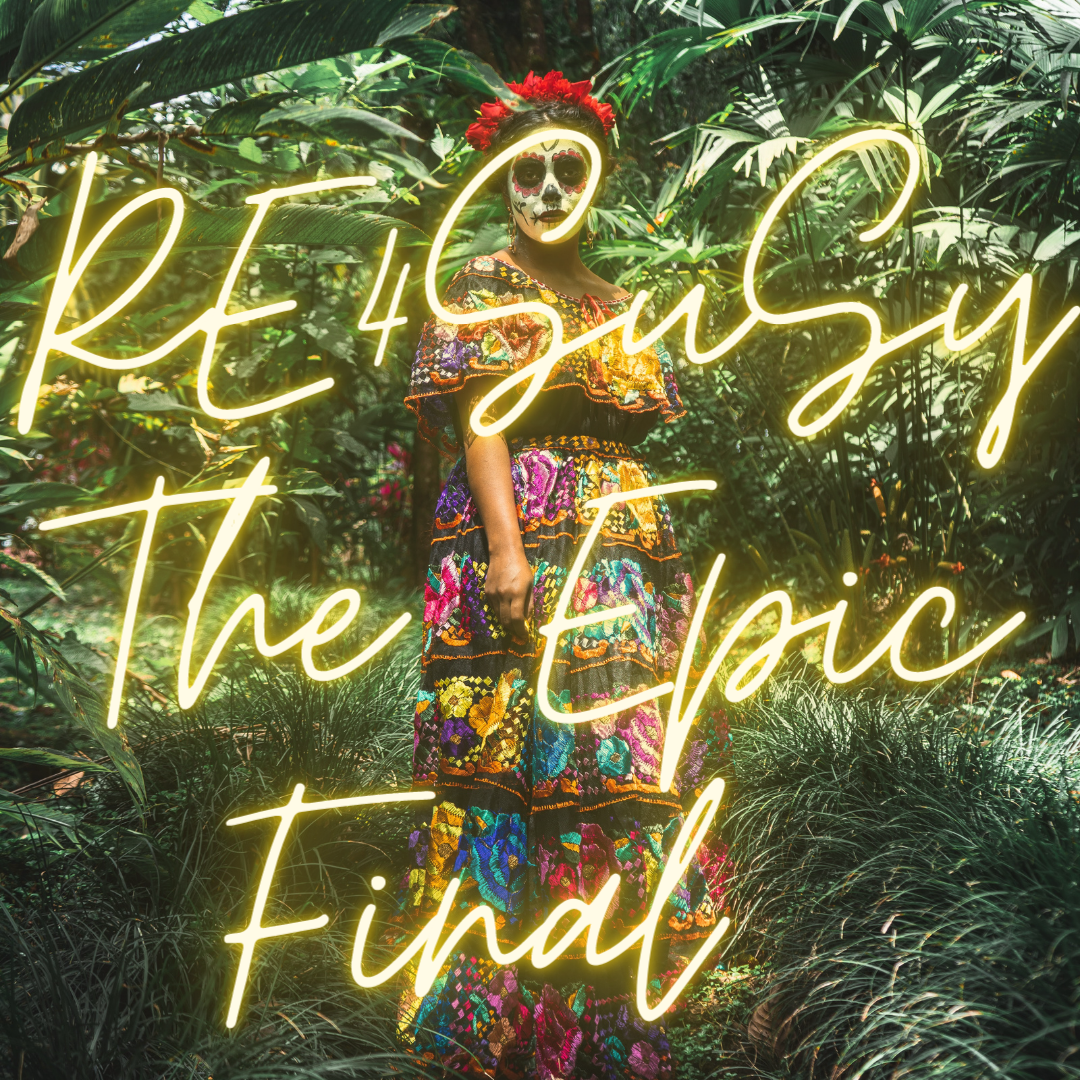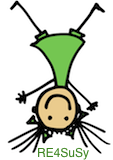|

Update RE4SuSy turns 10 - and it is the FINAL countdown. We invite all previous authors and researchers in the area to submit their understanding of the state of the art and how far we have come. After this final (epic!) gathering, the workshop is put to rest.
We invite you to submit an extended abstract of your review of the past 10 years and current vision of where we stand. At the workshop we will discuss the opportunity of publishing the results in an edited book.
Program (14:00-17:00 CET)
- Keynote Ivan Machado: "Are we close to reach a common understanding of Sustainable Software Engineering yet?" (30 + 20)
- Abstract: Recent literature on Sustainable Software Engineering has shown that software professionals have not yet reached a common and clear understanding of Sustainable Software Development (SSD). However, software engineers need to understand how software development could incorporate sustainability concepts for software to evolve towards energy efficiency. In this Keynote, I will discuss the results of an "empirical attempt" to characterize the SSD, highlighting the sustainable concerns it encompasses.
- (Very) Short Bio: Ivan Machado is currently an Adjunct Professor at the Institute of Computing at the Federal University of Bahia (UFBA) in Salvador, Brazil. His broad research area is Software Engineering, and his specific interests include software reuse and self-adaptive systems, software testing and analysis, sustainable software engineering, and mining software repositories. He is the Leader of the ARIES LAB, a Software Engineering Research Group at UFBA. He is serving in the Publicity Team of the ICT4S 2022, The 8th International Conference on ICT for Sustainability.
- Paper Presentation Session (10 + 10 per Paper)
- Maike Basmer, Timo Kehrer and Birgit Penzenstadler: "Towards Turning the Sustainability Awareness Framework into Action: A User-Centric Evaluation of Prototypical Tool Support"
- Susan Lieu, Adelric Wong and Birgit Penzenstadler: "The 'Vattn' Case: Analysing Sustainability Impacts in a Software Startup"
- Shola Oyedeji, Hatef Shamshiri, Bilal Naqvi and Jari Porras: "Exploratory Study on Agile Software Sustainability Requirement Toolkit"
- Fredrik Sjögren, Adam Klevfors and Birgit Penzenstadler: "Qualifying and Quantifying the benefits of mindfulness practices for IT workers"
- Grand Finale: Conluding discussion e quo vadis?
Motivation
The RE4SuSy workshop series has established a strong and growing research community around the different aspects of sustainability and how to support them in requirements engineering.
Since requirements define how and what a software will do, we maintain that requirements engineering is the key point in software engineering through which sustainability can be fostered. Thus, the RE4SuSy workshop series is concerned with research on techniques, tools, and processes for sustainability through requirements engineering.
Last year the workshop explored how to best visualize the impacts that software systems can create, and communicate to software developers in different application domains as well as how to improve sustainability education by stronger weaving it into software engineering courses.
This year, we continue this line of work as well as looking into continued assessment of impacts over time.
RE4SuSy is an interactive workshop: the contributors and prospective participants will engage well before the workshop date through on-line collaborative writing, discussion, and peer feedback. The workshop aims to foster community growth by supporting new collaborations, holding preliminary case studies, discussions, and birds-of-a-feather group work.
Software is a main driver for change in business and society, in changing life styles as well as business practices. Since requirements are the starting point for defining software, requirements engineering is the key point in software engineering through which sustainability can be fostered.
This workshop aims to provide an interactive stage for researchers and practitioners to share and exchange their latest work, to collaboratively work on expanding the body of knowledge in RE for sustainable systems, and to jump start new collaborations through the live creation of teams that commit to work together on concrete topics and in-workshop case studies and experiments.
From the RE'21 themes, we specifically support the notion that software is no longer a purely technical device or product. Its enormous power and potential continue to shape society, affecting human values and our ways to live our lives. Working from home and online teaching was imposed on us by the COVID-19 crises. So we are curious how requirements are related to this and to ethical issues, such as sustainability and gender. Where are we going?
Objective
The objective of the workshop is to establish a community of researchers and practitioners interested in collaborating on the topic of sustainability in requirements engineering.
This community will expand and build on the work already initiated in the past editions of this workshop, such as the research agendas and the the Karlskrona Manifesto on Sustainability Design. The workshop also aims to establish a common ground on the key topics of RE for Sustainability.
We intend to explore:
- How to best visualize such impacts and communicate to software developers;
- How to best communicate sustainability in different application domains;
- How to improve sustainability education by stronger weaving it into software engineering courses.
Submissions:
The workshop solicits a number of contribution types:
- Working session proposals, comprising of: Title of the session, brief discussion on what the topic implies; why is it relevant to software systems and sustainability, and how you would like to organise the session. Up to 300 words - This won't be published but may result in a joint publication afterwards.
- Full research papers (7-12 pages);
- Experience papers or Case study reports on RE 4 Sustainability (7-12 pages);
- Work in progress papers (4-6 pages);
- Positional papers: (2-6 pages);
- Posters: with a 2-page abstract;
- Demos: up to 5 minutes (also with 2 pages abstract);
- Lightning talks: extended abstracts (2 pages), that if accepted can be conveyed in a 5-10 minute talk;
- Videos of up to 5 minutes (also with 2 pages abstract);
Publication again with CEUR WS proceedings, listed in all literature databases (DBLP, Google Scholar, etc.), as we want to maintain our open access policy.
We encourage the submission of new and interactive formats, which can be presented as such at the workshop, and published in the workshop proceedings with textual descriptions.
Please adhere to the standard CEUR-WS formatting.
Important dates:
- Submission Live-line: July 9th, submission via easychair
- Decisions to authors: July 23rd
- Camera Ready due: Aug 12th
- Registration of at least one author by: Aug 12th
Organizers:
- Birgit Penzenstadler (Chalmers University of Techology, Sweden)
- Colin Venters (University of Huddersfield, UK)
- Ruzanna Chitchyan (University of Bristol, UK)
Program Committee (tbc)
Sedef Akinli Kocak, Ryerson University, Canada
Christoph Becker, University of Toronto, Canada
Coral Calero, Universidad Castilla La Mancha, Spain
Joao Paulo Fernandes, Faculdade de Engenharia, Universidade do Porto, Portugal
Joao Araujo, Universidade NOVA de Lisboa, Portugal
Ana Moreira, Universidade NOVA de Lisboa, Portugal
Patricia Lago, VU University Amsterdam, Netherlands
Jari Porras, LUT, Finland
Stefanie Betz, HFU, Germany
Norbert Seyff, FHNW, Switzerland
Guillermo Rodriguez Navas, Malardalen University, Sweden
Maria Spichkova, RMIT University, Australia
Timo Kehrer, HU Berlin, Germany
Past workshops:
- 9th RE4SuSy, 2020, Zurich, Switzerland
- 8th RE4SuSy, 2019, Jeju, South Korea
- 7th RE4SuSy, 2018, Banff, Canada
- 6th RE4SuSy, 2017, Lisboa, Portugal
- 5th RE4SuSy as sustainability track in MoDRE, 2016, Beijing, China
- 4th RE4SuSy, 2015, Ottawa, Canada
- 3rd RE4SuSy, 2014, Karlskrona, Sweden
- 2nd RE4SuSy, 2013, Rio de Janeiro, Brasil
- 1st RE4SuSy, 2012, Essen, Germany
|

